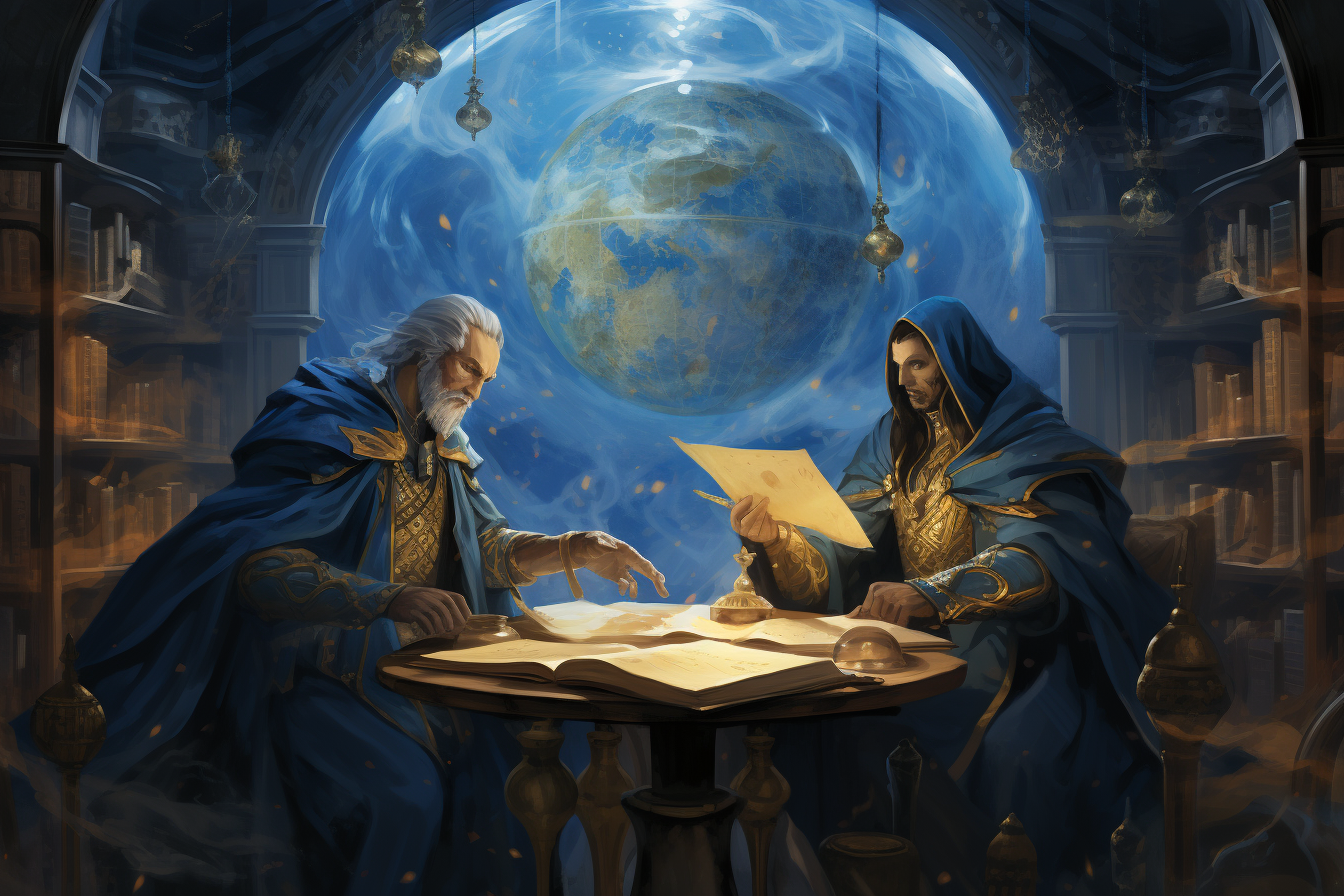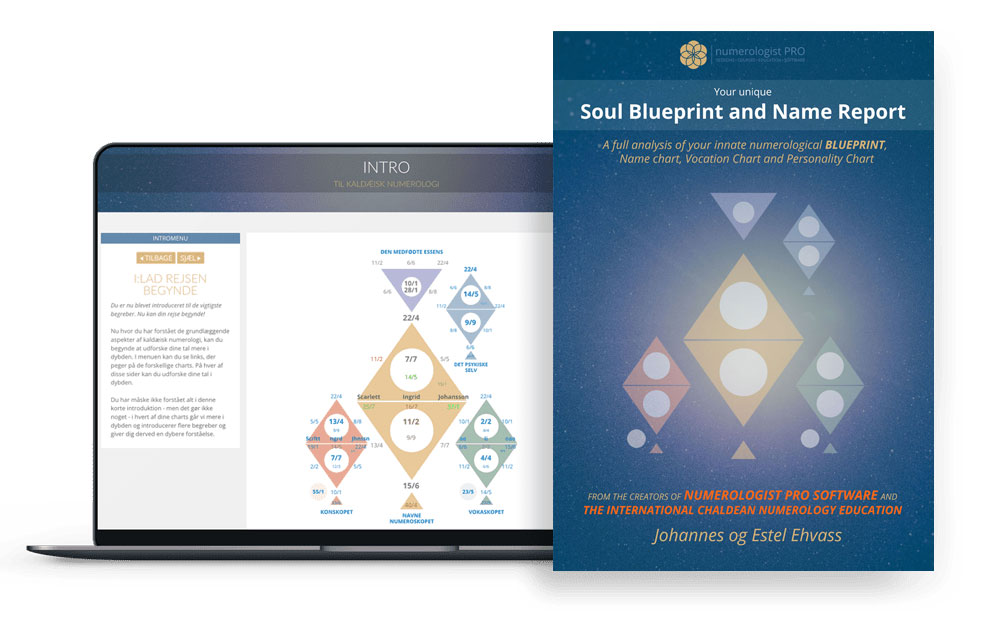Court Astrologers of the Renaissance: Catering to the Elite

Estel Ehvass
Welcome, dear reader! The Renaissance marked a pivotal time for many disciplines, and astrology was no exception. As society rekindled its passion for the arts and sciences, so too did it revisit the stars. This era, renowned for its rebirth of knowledge, saw astrology intertwine with emerging scientific studies and the broader awakening of human curiosity. The cosmos, during this period, served not just as a guide for destinies, but also as a testament to humanity's relentless pursuit of understanding. Dive with me into this intriguing era, where stars and society found renewed harmony.
Introduction

The Renaissance, a time of profound cultural and intellectual rebirth, witnessed the intertwining of politics, religion, art, and astrology. Among the most fascinating figures of this age were the court astrologers. These learned men, often with a blend of scientific and esoteric knowledge, held positions of great influence, guiding the decisions of kings, queens, and nobles.
The Role and Relevance of Court Astrologers
Interpreters of the Heavens
Astrologers of the time believed that the movement of celestial bodies had a direct influence on earthly events. Court astrologers, in particular, were tasked with interpreting these movements and forecasting their implications for the monarch and the kingdom. Their readings could impact decisions on everything from military campaigns to royal weddings.
Trusted Advisors or Mere Entertainers?
While many rulers deeply respected their astrologers, seeing them as vital advisors, others viewed them more as entertainers or curiosities. Still, even in courts where skepticism prevailed, astrologers often enjoyed a privileged status due to the mystique of their craft and their occasional accurate predictions.
The Elevation of the Court Astrologer
From General Practitioners to Specialized Scholars
The Renaissance was a period of specialization in many fields, including astrology. While medieval astrologers might have served a broad clientele, offering guidance on farming, health, and personal matters, Renaissance court astrologers often had a more singular focus: the fate of the ruling elite. This specialization, combined with the patronage of the nobility, elevated their status significantly.
The Influence of the Patron
As with artists, scientists, and philosophers of the time, astrologers often relied on the patronage of the wealthy and powerful. These patrons, typically monarchs or high-ranking nobles, provided astrologers with the resources they needed to study, write, and practice their craft. In return, astrologers offered their patrons insights, forecasts, and occasionally, flattery. An astrologer’s interpretation might, for instance, highlight the divine right of a ruler or the auspiciousness of a proposed political alliance.
The Grand Courts of Europe and Their Starry Advisors
The Medici and Their Celestial Counsel
In Florence, the Medici family, known for their vast wealth and patronage of the arts, also sought the wisdom of astrologers. Lorenzo de’ Medici, also known as Lorenzo the Magnificent, is known to have consulted astrologers to determine favorable dates for political decisions and family events.
England’s Royal Astrologer: John Dee
One of the most famous court astrologers of the Renaissance was John Dee, who served Queen Elizabeth I of England. A polymath, Dee’s interests spanned from mathematics to alchemy, but it was his skills in astrology that made him an essential advisor to the queen. He even chose the date for Elizabeth’s coronation based on astrological considerations.
The Turbulent French Courts
In France, Catherine de Medici, the queen mother and regent, was known for her deep interest in the occult and her reliance on astrologers. One of her trusted advisors was Nostradamus, whose prophecies remain famous to this day. However, the French courts also saw significant astrological controversies, especially when predictions went awry or when astrologers became embroiled in political intrigues.
Conclusion
The role of the court astrologer during the Renaissance was a blend of science, art, and politics. While they were undoubtedly influential, their position was also precarious. A wrong prediction could lead to a fall from grace, exile, or worse. Yet, their legacy is undeniable. These astrologers, with one foot in the spiritual realm and the other in the political, offer a captivating glimpse into the complexities and contradictions of the Renaissance court.
Famous Predictions and Their Consequences
Introduction
The Renaissance, an age of enlightenment and exploration, was also a time of superstition and a fervent belief in the mystical. As astrology permeated every facet of daily life, the predictions of renowned astrologers held significant weight. Some of these predictions, accurate or not, led to substantial consequences, shaping the course of individual lives and, at times, entire nations.
The Power of a Prophetic Word
The Role of Renaissance Predictions
Astrological forecasts during the Renaissance went beyond personal horoscopes. Astrologers were often tasked with predicting political outcomes, wars, and the fates of monarchs. With these prophecies came great responsibility, as they could incite panic, bolster confidence, or inform strategic decisions.
The Thin Line Between Prophecy and Reality
Renaissance society often faced a self-fulfilling prophecy dilemma. When notable figures acted based on astrological predictions, these actions sometimes directly led to the prophecy’s fulfillment. For instance, a prediction of conflict might spur a ruler to take preemptive military action, inadvertently causing the very war the prophecy foretold.
Famed Forecasts of the Era
Nostradamus: The Enigmatic Seer
Perhaps no astrologer from the Renaissance is as well-known as Michel de Nostredame, commonly referred to as Nostradamus. His collection of quatrains, “Les Prophéties,” contains over a thousand cryptic predictions. While often vague, some believe they’ve accurately predicted significant events, such as the French Revolution and the rise of Napoleon. Catherine de Medici, the queen mother of France, was so intrigued by his writings that she summoned him to court to explain his prophecies about her children.
John Dee: The Royal Astrologer’s Forecast
John Dee, the esteemed advisor to Queen Elizabeth I of England, made several critical astrological predictions during his tenure. Notably, he selected the date for Elizabeth’s coronation based on favorable astrological signs, ensuring a prosperous and stable reign. His predictions were not always met with approval, though. On one occasion, he was imprisoned for “calculating” or casting horoscopes for Queen Mary and Princess Elizabeth during a politically tumultuous period.
Luca Gaurico: The Fate of Monarchs
An Italian astrologer of great repute, Luca Gaurico was known for predicting the futures of several European monarchs. One of his most famed predictions concerned the future King Henry II of France. Gaurico foretold that the king would be injured in the head during single combat and die. The prediction eerily came to pass during a jousting tournament, reinforcing the belief in astrological prophecies.
Consequences of Prophetic Claims
Rise and Fall at Court
Astrologers who found favor with monarchs often enjoyed great privileges. Their predictions, especially favorable ones, could elevate their status, granting them wealth, property, and influence. However, a failed prophecy or an unwelcome prediction could lead to disgrace, exile, or even execution.
Mass Hysteria and Societal Impact
Beyond the court, astrological predictions also had societal ramifications. Forecasts of calamities, like famines or plagues, could lead to public panic. Conversely, positive predictions about bountiful harvests or periods of peace could instill collective optimism.
Strategic and Political Outcomes
On a grander scale, astrological predictions influenced diplomatic relations and warfare strategies. Monarchs and military leaders, considering the forecasts, might choose to engage in treaties, initiate battles, or delay campaigns.
Conclusion
The astrological predictions of the Renaissance, whether viewed as mere coincidences or divine insights, undeniably played a significant role in shaping the period’s history. The intertwined relationship between astrologers, their prophecies, and the monumental events of the time offers a profound glimpse into the Renaissance’s complex socio-cultural tapestry. While today’s world may view such predictions with skepticism, understanding their profound impact during the Renaissance provides valuable insight into the era’s psyche and its undying fascination with the cosmos.
The Shift from Collective to Individual Horoscopes
Introduction
In the vast timeline of astrology’s history, the Renaissance period stands as a momentous epoch, witnessing a transformation in the practice and consumption of astrological knowledge. One of the most significant changes during this time was the shift from collective, or mundane, horoscopes to more personalized, individual horoscopes. This transition not only reshaped the realm of astrology but also mirrored broader societal and cultural evolutions of the era.
Understanding Collective Horoscopes
Mundane Astrology: Predicting the Fate of Nations
Before the widespread adoption of individual horoscopes, astrologers primarily focused on mundane astrology. This branch of the celestial art predicted events that would impact communities, nations, and the world at large. Astrologers would cast charts for countries or cities, often at the inception of a significant event or the coronation of a monarch. These charts would forecast wars, famines, natural disasters, and other large-scale events.
Role in Governance and Leadership
Mundane horoscopes were invaluable to rulers and decision-makers. Kings, queens, and their councils often consulted astrologers before making pivotal decisions, hoping to align their choices with the stars’ supposed will. The belief was that by understanding the celestial signs, leaders could anticipate and mitigate potential disasters or harness auspicious timings for their endeavors.
The Rise of Individual Horoscopes
Printing Press and Information Democratization
The invention of the printing press in the mid-15th century was a game-changer. With books becoming more accessible and affordable, knowledge, including astrological knowledge, began to reach the broader populace. This democratization of information meant that horoscopes, which were once the domain of the elite, became available to the common man. Printed almanacs, often containing astrological predictions and advice tailored to individuals, grew in popularity.
Personal Agency and the Renaissance Individual
The Renaissance was a time of profound emphasis on the individual. With the rise of humanism, people started to see themselves as agents with control over their destinies. This cultural shift dovetailed perfectly with individual horoscopes, which provided personalized guidance and insights, allowing people to navigate their lives with a perceived cosmic roadmap.
Birth Charts: Mapping Personal Fate
The birth chart, or natal chart, became an essential tool for Renaissance astrologers. By casting a chart based on an individual’s date, time, and place of birth, astrologers believed they could interpret the person’s inherent qualities, strengths, challenges, and potential life path. The increasing demand for these charts reflected society’s growing interest in personal destiny and self-awareness.
Consequences of the Shift
Commercialization of Astrology
As individual horoscopes gained traction, a commercial opportunity emerged. Astrologers began offering their services to the general public, not just the elite. This burgeoning market led to both genuine astrological practitioners and charlatans hoping to capitalize on the trend, leading to varying quality in astrological counsel.
Greater Personalization in Prediction and Advice
With individual horoscopes, predictions became more nuanced and tailored. Instead of broad forecasts about nations or large groups, astrologers provided insights into personal relationships, career paths, health, and other intimate aspects of life. This granularity of advice resonated deeply with individuals seeking guidance in their personal journeys.
Challenges to Traditional Authority
As people began to consult the stars for personal decisions, traditional sources of authority, including religious institutions, faced challenges. The Church, in particular, viewed the growing emphasis on individual horoscopes with suspicion, concerned that people might prioritize astrological advice over religious teachings.
Conclusion
The shift from collective to individual horoscopes during the Renaissance was more than just an evolution in astrological practice; it was a reflection of broader societal changes. As the Renaissance man and woman emerged with a stronger sense of individuality and personal agency, astrology adapted, providing tools and insights that catered to this newfound self-awareness. The legacy of this shift remains today, as modern astrology continues to focus predominantly on the individual, offering cosmic insights into the intricacies of personal life and destiny.

Johannes & Estel: Renowned authorities in Numerology, Astrology, and the esoteric arts. As the founders of Scandinavia's premier Numerology school, we're delighted to share our insights through this curated series on astrology. Dive in and discover the stars.
The Worlds Most Advanced Numerology Report

Your birthdate reveals your unique life purpose, potentials, talents, weaknesses, and karma in this life.
Your names show what you attract into your life regarding your career, relationships, happiness, money, and success.
GET THE REPORT HERE
Introduction to Astrology
The history of Astrology
Moving beyond deterministic astrology
Foundation of Astrology: Planets, Signs and Houses
Astrology and the Holographic Universe
The Holographic Universe
The Human Psyche as a Mirror to The Solar System
The Human Body as a Mirror to The Star Signs
Astrology Background
Egyptian Astrology
Mayan Astrology
Chinese Astrology
Indian Astrology - Jyotish
Celtic Astrology
Tibetan Astrology
Mesopotamian Astrology
Early Mesopotamian Astrology: The Dawn of Celestial Divination
Enuma Anu Enlil: The Epicenter of Babylonian Celestial Omen Interpretation
Babylonian and Chaldean Astrology
Babylonian and Chaldean Astrology
Chaldean influence and evolution
Chaldean Wisdom: Safeguarding and Transmitting Astrological Knowledge
Hellenistic Astrology
Hellenistic Astrology background
Claudius Ptolemy and Tetrabiblos
Vettius Valens
Dorotheus of Sidon
Persian Astrology
Persian Astrology background
Sassanian Astrology
Late Antiquity and The Transition Period
Late Antiquity and The Transition Period
Hellenistic to Islamic Transition: The Torchbearers of Astrological Wisdom
Islamic Golden Age
Arabian Astrology Background
Arabian Astrology Contributions
Medieval Astrology
Introduction: The Medieval Cosmos
Monastic Preservers: Astrological Knowledge in the Dark Ages
Astrology in Medieval Medicine
Kings, Queens, and Constellations: Astrology in the Medieval Court
The Church and the Stars: A Contentious Relationship
Universities and Scholastic Pursuits: Academic Astrology
Astronomy & Astrology: Tools of the Trade
Medieval Astrological Houses and the Synthesis of Traditions
Transition to the Renaissance: Humanism and the Celestial Arts
Reflections: Medieval Astrology's Echoes in Modern Practice
Astrological Art of the Middle Ages
Famous Medieval Astrologers
Medieval Astrological Texts
Renaissance Astrology
Renaissance Humanism and Astrology
Scientific Advancements and Astrology
The Social Fabric: Astrology in Everyday Renaissance Life
Court Astrologers of the Renaissance
Controversies and Conflicts: Astrology Under Scrutiny
Renaissance Texts and Authors: Continuation of a Tradition
Astrology and Art: Celestial Imagery in the Renaissance
Renaissance Astrological Practices: Evolutions and Innovations
End of the Renaissance: The Gradual Decline of Astrological Influence
Renaissance Astrology's Echo in the Modern World
Enlightenment Astrology
Introduction: The Enlightenment and Astrology
Challenging the Stars: Astrology's Critics during the Enlightenment
Astrology and the New World
Astrology in the 19th Century
The Dawn of Psychological Astrology
Astrology in the 20th Century: A Modern Renaissance
Astrological Associations and Schools
Modern Controversies and Astrology
Astrology and Popular Culture
Astrology and Technology
Current Trends and Future Directions in Astrology
Conclusion: Reflecting on Astrology's Evolution
The Planet Significances
The Sun in Astrology
The Moon in Astrology
Mercury in Astrology
Venus in Astrology
Mars in Astrology
Jupiter in Astrology
Saturn in Astrology
Uranus in Astrology
Neptune in Astrology
Pluto in Astrology
Chiron in Astrology
Black Moon Lilith in Astrology
Pars Fortuna in Astrology
Ceres in Astrology
Houses in Astrology
Introduction to Astrological Houses
The Angular Houses
The Succedent Houses
The Cadent Houses
The 1st House
The 2nd House
The 3rd House
The 4th House
The 5th House
The 6th House
The 7th House
The 8th House
The 9th House
The 10th House
The 11th House
The 12th House
Interaction Between Houses
Derived Houses, House Rulers, and Interceptions
Conclusion: Synthesizing House Knowledge
All Materials © 2023 & 2024 Numerologist PRO
Terms of Service: Information provided by Numerologist PRO and/or from this web site is not intended as advice (medical, psychological, financial or other), nor is it intended to replace your work with a qualified professional (medical or otherwise). You should maintain your relationship with your providers and consider the services of this site as informational only. Any information, stories, examples, or testimonials presented on this website do not constitute a warranty, guarantee, or prediction regarding the outcome of an individual. This web site is a sharing of knowledge and information of numerology/energy work based on the experiences of Numerologist PRO. You are encouraged to make your own decisions based on your own research and inner guidance. By booking and receiving services, you agree to fully release and hold harmless Numerologist PRO and all it's affiliated numerologists from and against any liability or claim that may arise out of or in connection with their service(s).
Numerologist PRO © 2021

CONTACT
numerologist@numerologistpro.com
LIKE US, and get free numerology tools, info about your personal numbers, best business dates of the year - and more!
YOUR FREE NUMEROSCOPE CHART
Enter your name and email below and get access to our free online numerology chart tool.